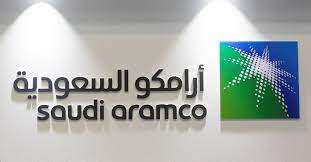Riyad November 8 2021: Saudi Aramco raised its December official selling prices, spurred by healthy Asian demand cues and a widening Brent/Dubai spread that continued to thwart the entry of arbitrage barrels from the West, trade sources told S&P Global Platts Nov. 8.
Aramco raised differentials for its Arab Light grade by $1.40/b but reserved its sharpest hikes for its Arab Extra Light and Arab Super Light, which were up by $2.20/b and $2.85/b, respectively. The Heavy and Medium grades were increased by $1.10/b and $1.30/b, respectively, it said in a Nov. 5 letter.
A L S O || R E A D
Saudi Aramco’s quarterly profit surges on oil price, volumes
“It has been raised a lot, at the upper range of market expectations,” a trader with a North Asian refinery said.
The Dubai futures spread, understood to be a key element in OSP calculations, averaged $2.29/b in October, up from an average of $1.42/b in September, Platts data showed.
A Platts survey in October showed participants expecting an increase in OSPs for December by 30 cents/b-$1/b across Aramco’s Asia-bound crude grades.
Winter demand in Asia and tighter supplies of crude could be key reasons for the jump in OSPs this month, traders said.
OPEC and its allies are standing firm on boosting crude output quotas by 400,000 b/d for December, despite the clamoring by various countries to increase oil supplies as prices rise.
A L S O || R E A D
Aramco Trading Arm to join Platts oil pricing process in Asia
“[The hike] only shows the ambition of Saudi, over optimistic about margins in January maybe,” another trader with a North Asian refinery said. “Saudi [has] become the most expensive crude of the same grade loading in December [out of] the Arab Gulf.”
In October, the Dubai Singapore cracking margins averaged $3.975/b, compared with an average of $1.753/b in September, Platts data showed.
The second-month gasoline cracks average $11.47/b in November so far compared with $10.94/b in October, while Naphtha cracks average $4.23/b in November till date compared with $3.02/b in October, the data showed.
Cold weather in Asia has prompted regional refiners to seek more crude supplies as other heating alternatives such as coal and LNG turned increasingly expensive, sources said.
The steep hike for the lighter crudes reflects buyer preference for grades such as Murban which has seen values soar over the past few weeks, a trader with a Southeast Asian refinery said.
“Arguably, end users might opt to maintain or lower the AXL [Arab Extra Light] lifting. Backwardation is steep now, and alternate crude Murban isn’t cheap either,” the same trader said.
Month to date, the IFAD Murban vs Dubai futures spread averages $5.33/b compared with $3.44/b for the whole of October, Platts data showed.
While Middle East crude turns expensive, buyers are unable to opt for alternative arbitrage barrels that continue to remain out of bounds due to a wide Brent/Dubai spread, market sources said.
“Very high [OSPs] but I think they factored in the wide Brent Dubai EFS,” another trader with a South Asian refinery said.
At the Asian close Nov. 5, the January Exchange of Futures for swaps, or EFS, was assessed at a premium of $5.04/b, the highest since September 2013, Platts data showed.
The Brent/Dubai EFS is a key indicator of the spread between light, sweet and heavy, sour crudes, and a wider EFS makes crude priced against Dubai more economically favorable for Asian refiners compared to Brent-linked ones.
A L S O || R E A D
Aramco Warns World’s Spare Oil Supplies Are Falling Rapidly
Rising freight costs and higher differentials for West African and US grades could further make these barrels more elusive to Asian refiners, traders said.
“Freight will also stay high in December and early January for arbitrage from the US and WAFR.” the second trader with the Southeast Asian refinery said.
Meanwhile, spot premiums for January-loading crude could rise as firm demand cues persist with focus on buying from Asian countries like India, China and Japan, market participants said.
“I think Japan will buy anyway, disregarding [the] crude prices,” a third trader with a North Asian refinery said.
Eyes will now be on the term nominations for December-loading barrels with sources suggesting a likely possible reduction in volumes.
“They will not max [nominations], that’s for sure. Some demand will likely be switched to spot,” an oil trader in Singapore said.
However, Asian refiners are unlikely to compromise on their December term nominations as they need barrels arriving at the earliest, industry sources said.
“Refineries really need the oil [to] arrive early. Think still January spot making more sense if refiners can wait a few days more,” the first trader with the North Asian refinery said.











